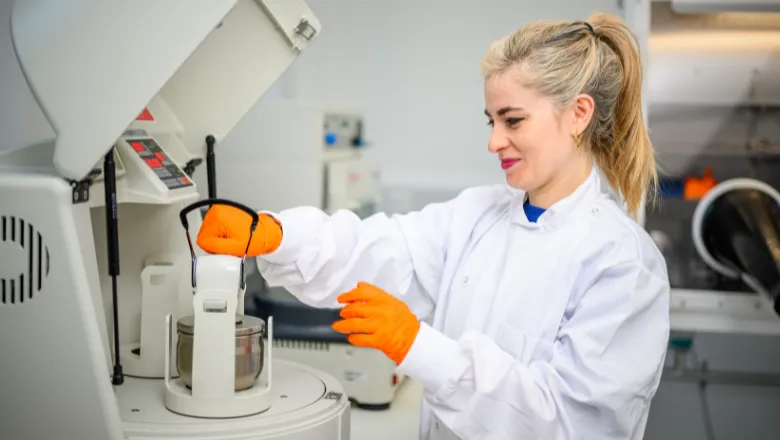I hope my research will help inform a battery roadmap for UK Net Zero policy – helping provide alternative solutions to the energy storage required for transitioning from fossil fuels to renewables.”
Dr Laura Lander
18 July 2024
King's researcher awarded UKRI funding to develop next generation sustainable batteries
The UKRI Future Leaders Fellowship provides promising research leaders with long-term support to tackle ambitious projects.

Dr Laura Lander from the Department of Engineering has received a prestigious UKRI Future Leaders Fellowship to further her research on developing sustainable and resilient batteries.
Announced today, the Fellowship will support her work on developing innovative battery systems – including how to improve the sustainability and resilience of the battery supply chain by taking the strain off critical resources including lithium, graphite and cobalt.
She is one of 68 appointees announced in round eight of UK Research and Innovation’s highly competitive flagship programme. The Fellowship is designed to support scientists to tackle major global challenges as they become the next generation of research leaders. The total fund is £104 million.
Currently lithium-ion batteries are widely used in battery-operated technologies such as electric vehicles (EVs) and for large-scale grid storage applications. However, they are vulnerable to supply chain issues, sustainability and safety risks.
Lithium is classified as a critical resource with important environmental impacts during extraction and refining, and most markets are dependent on few lithium monopolies. With the exponential rise of EVs and energy storage system applications, the global demand for battery-grade raw materials is expected to increase dramatically over the next two decades.
Dr Lander’s research applies a multi-angle research approach to develop the next generation of batteries, including aluminum-ion batteries to build resilience in the supply chain of the green technology sector.
Aluminum-ion batteries are a promising contender to take the strain off lithium-ion batteries due to their low cost, light weight and the natural abundance of aluminum.
Dr Lander said, “Aluminum-ion batteries could help alleviate supply chain pressures and provide a more resilient and potentially sustainable battery technology.
“I’m looking at the battery system from two angles: firstly, from a fundamental point-of-view to really understand the working mechanisms to inform materials design strategies for improved battery performance. Secondly, I evaluate the environmental and economic aspects across their value chain as well as assess their supply chain risks.
“I hope my research will help inform a battery roadmap for UK Net Zero policy – helping provide alternative solutions to the energy storage required for transitioning from fossil fuels to renewables.”
This work builds on Dr Lander’s previous transdisciplinary research on energy storage technologies including the design and characterisation of energy storage materials and life cycle assessment.

